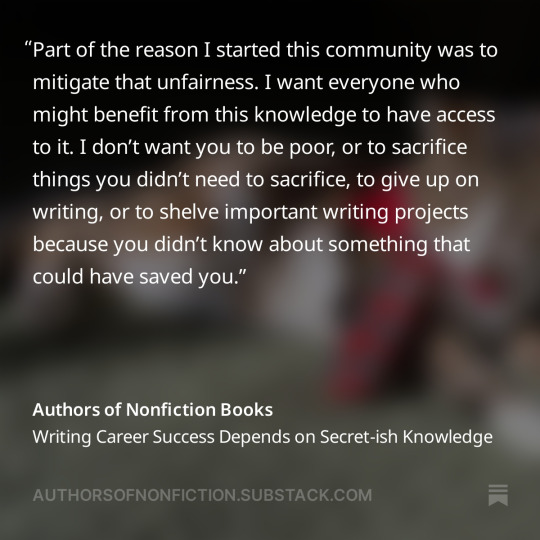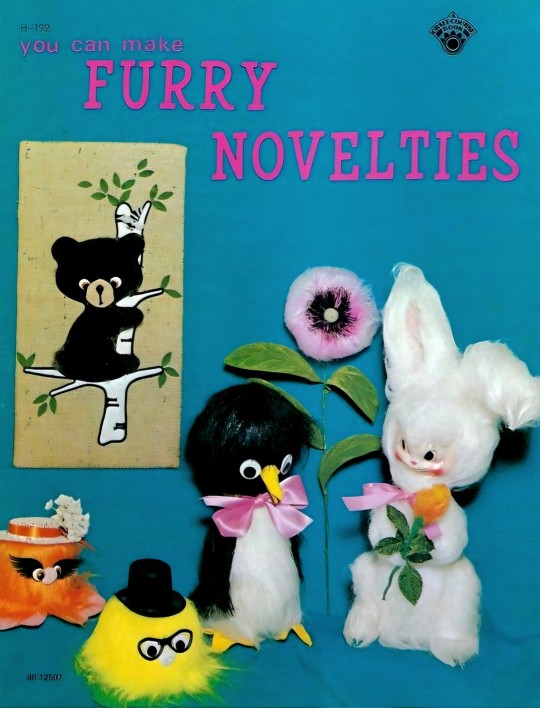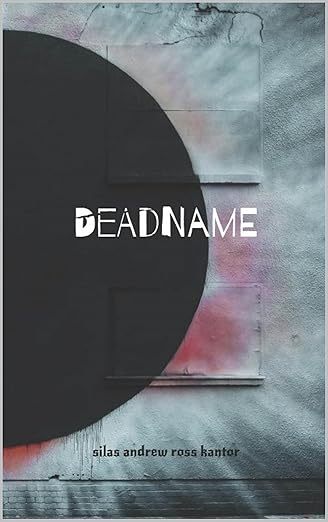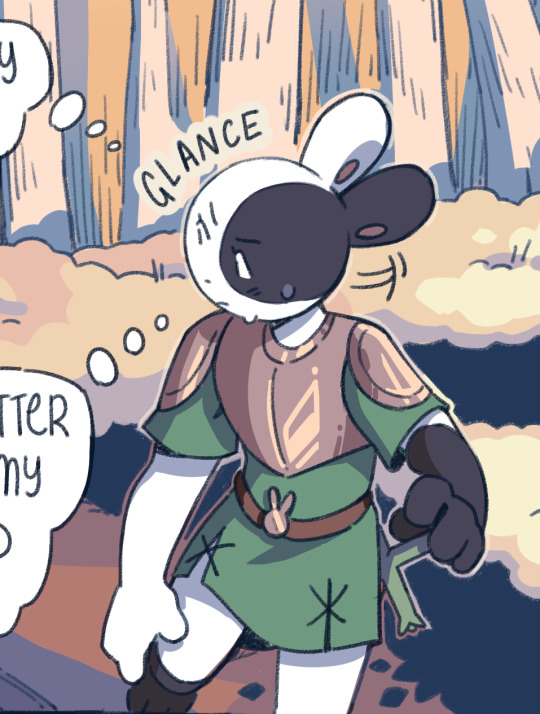#how is a book published
Explore tagged Tumblr posts
Text
youtube
Why Your manuscript probably got rejected | SummitPressPublishers
#how to get published#why your manuscript probably got rejected#summitpresspublishers#rejection reasons#research paper#publishing concepts#how to publish a book#manuscript format#how is a book published#book publishing#manuscript#reviewer comments reject#how to publish a book on your own#how do you publish a book#how to publish a book for free#paper rejected after review#manuscript rejection#paper rejection#manuscript probably got rejected#Youtube
0 notes
Text




headmage's night terrors, based on raverne = crowley theory
#yearly gakuencho art WAOUUUUUU#this ended up being a lot more wordy than i thought lmao#first time publishing how i think raverne looks like#i was gonna tag but like.. we're past this part of book 7 on en twst already.. wow...#WEEHEHEHEHEH#twisted wonderland#twst#raverne draconia#dire crowley#twst mc#mc/yuu#twst oc#yuulis crowley#( can u tell what show i started watching... el em ay oh.. )
1K notes
·
View notes
Text
Success is Dependent on Secret Information
A lot of career success depends on you and the work you put into it, as well as luck beyond your control, but sadly, it also depends on secret information, magic words, and stupid little tricks.
That's not fair. I don't like it, but we can help by sharing that secret information--which is the antidote to gate-keeping. That's why I recently wrote this in my Authors of Nonfiction Books in Progress substack:

It can be really disheartening to realize that, when you thought you failed at something because you didn't do well enough, other people had the magic words. For instance, some injustices I've witnessed (that may or may not always be the case, or maybe not anymore!) include:
A good athletic score doesn't get you into a college sport--having a coach or parent talk to the college coach is mandatory
Many school-sponsored scholarships are often not tightly linked to grades, test scores, or financial need, but whether the student said the right words ("I can't afford that") to the right person (presumably some financial office person.)
Apparently, some aspects of some degrees are cheated on by most students (if that's the case, we should tell all students that it's ok to cheat on that so they don't waste their time on something that apparently wasn't important anyway, or worse, fail out just for being ethical.)
Especially related to books: Few people will mention that you can get grants! Not my agent, not my publisher, not the 1 zillion "pros and cons of trad publishing" articles out there mentioned grants (Grant eligibility is a HUGE benefit of trad publishing.) I got more money from grants than my entire book advance!
Let me know what magic words/secret knowledge you've learned, that you wish you knew sooner. Or: the widespread understanding of what information would make a field more fair?
And please share ANBIP with anyone writing, publishing, or seriously about to start writing, a nonfiction non-memoir book, especially if they're interested in the more practical side (I share more about resources and strategy than craft.)
#book writing#I want to share this stuff with everyone!#Funny thing: I stopped sharing this info on FB because those groups get really mad any time I mention trad publishing#Literally no matter how I phrase it#Another reason I started this group was to gather resources for people who share similar ideologies about book-publishing#no hate to anyone who thinks differently
2K notes
·
View notes
Text
youtube
The cure for Imposter Syndrome | Summit Press Publishers
Why do we experts suffer from Imposter Syndrome, particularly when we want nothing more than to write and publish an expert-positioning book? I can't answer the why, but I can share the cure.
#how to get published#imposter syndrome#how to publish a book#how is a book published#book publishing#how to publish a book on your own#how do you publish a book#publishing concepts#what is imposter syndrome#imposter syndrome ted talk#personal growth#mental health awareness#how to deal with imposter syndrome#what is the imposter syndrome#mental health problems#cure for Imposter Syndrome#Summit Press Publishers#book writer#Youtube
0 notes
Text
looking for a new piece of xenofiction
ask the creator if their xenofiction is Watership Down or Warrior Cats
they don’t understand
pull out illustrated diagram explaining what is Watership Down and what is Warrior Cats
they laugh and say ‘It’s good xenofiction sir’
look inside
it’s Warrior Cats
#azureisms#and now for a nichepost that will appeal to approximately nobody#animal xenofiction#xenofiction#sorry to get pretentious in here tonight gang I just need to be a hater sometimes. for enrichment#Don’t get me wrong every person who got into xenofiction from Warrior Cats is a win in my book#Like I Was One Of Those#But you Start To Notice#Once you’ve read books where the animals Act Like Animals#How it was among the first patients of the 'little humans in wild animal costumes' curse#Like I signed up for animals…. where are the animals#Yea this is about published books written by Warrior Cats Youtubers who you can tell have never touched anything else in the genre#bc when you bite into the worldbuilding it tastes like wet cardboard#this is also about warriors rewrites that just anthropomorphize the cats more like we didn’t pick up the books in middle school#because we wanted to see wild cats being wild cats#but alas! that’s me complaining#DeviantArt wolf comics and sparklecat OCs are a staple of culture. I’m not your god. be free
685 notes
·
View notes
Text
Master Dialogue Writing Techniques for Engaging Fiction (For Writers)
(Beware, long post!)
As fiction writers, we all know that effective dialogue is essential for bringing our stories and characters to life. After all, the way our protagonists, antagonists, and supporting players speak to one another is one of the primary ways readers get to know them on a deep, intimate level. Dialogue reveals personality, uncovers motivation, and propels the narrative forward in a way that felt narration simply can't match.
But nailing natural, compelling dialogue is easier said than done. It's a craft that takes serious skill to master, requiring writers to have a keen ear for authentic speech patterns, a nimble handle on subtext and implication, and the ability to strike that delicate balance between being true to real-world conversation while also keeping things snappy, dynamic, and laser-focused on the story at hand.
If you're someone who struggles with crafting dialogue that truly sings, never fear. In this in-depth guide, I'm going to dive deep into the techniques and best practices that will help you elevate your dialogue writing to new heights. By the end, you'll have a toolbox full of strategies to ensure that every exchange between your characters is as gripping, revealing, and unforgettable as possible.
The Fundamentals of Effective Dialogue
Before we get into the more advanced nuances of dialogue writing, let's start by covering some of the foundational principles that all great fictional conversations are built upon:
Reveal Character One of the primary functions of dialogue is to give readers a window into who your characters are as people. The way they speak — their word choices, their tone, their body language, their turns of phrase — should provide vivid insight into their personalities, backgrounds, values, quirks, and emotional states.
Think about how much you can glean about someone just from how they communicate in real life. Do they use a lot of slang and shorthand? Are they verbose and flowery with their language? Do they struggle to make eye contact or fail to respond directly to questions? All of these subtle linguistic cues are powerful tools for crafting multi-dimensional characters.
Drive the Plot Forward While revelations about character are crucial, you also want to ensure that your dialogue is constantly pushing the story itself forward. Each exchange should feel purposeful, moving the narrative along by introducing new information, triggering plot points, creating conflict, or prompting characters to make pivotal decisions.
Dialogue that feels aimless or extraneous will ultimately bore readers and detract from the forward momentum of your story. Every line should have a clear intent or function, whether it's uncovering a hidden truth, setting up a future complication, or escalating the tension in a high-stakes moment.
Establish Distinct Voices In a story featuring multiple characters, it's crucial that each person has a clearly defined and differentiated way of speaking. Readers should be able to tell who's talking just from the rhythm, diction, and personality of the dialogue, without any additional context clues.
This doesn't mean every character has to have an over-the-top, hyper-stylized way of communicating. In fact, the most effective character voices often feel grounded and natural. But there should still be distinct markers — whether it's word choice, sentence structure, tone, or speech patterns — that make each person's voice instantly recognizable.
Convey Subtext While the literal words being spoken are important, great dialogue also traffics heavily in subtext — the unspoken emotional undercurrents, power dynamics, and hidden agendas that simmer beneath the surface of a conversation.
The most compelling exchanges happen when characters are communicating on multiple levels simultaneously. Perhaps they're saying one thing out loud while their body language and tone convey a completely different sentiment. Or maybe they're engaged in a subtle war of wits, trading verbal jabs that reveal deeper wells of resentment, attraction, or vulnerability.
Mastering the art of subtext is key to creating dialogue that feels layered, lifelike, and imbued with dramatic tension.
Strategies for Writing Snappy, Realistic Dialogue
Now that we've covered the foundational principles, let's dive into some specific techniques and best practices that will take your dialogue writing to the next level:
Omit Unnecessary Details One of the biggest mistakes many writers make with dialogue is bogging it down with too much extraneous information. In real life, people rarely speak in perfectly composed, grammatically correct full sentences. We stumble over our words, interrupt each other, trail off mid-thought, and pack our speech with filler words like "um," "uh," and "you know."
While you don't want to go overboard with mimicking that messiness, you should aim to strip your dialogue of any overly formal or expository language. Stick to the essentials — the core thoughts, feelings, and information being exchanged — and let the subtext and character voices do the heavy lifting. Your readers will fill in the gaps and appreciate the authenticity.
Master the Art of Subtext As mentioned earlier, crafting dialogue that's rich in subtext is one of the keys to making it feel gripping and lifelike. Think about how much is often left unsaid in real-world conversations, with people dancing around sensitive topics, conveying hidden agendas, or engaging in subtle power struggles.
To layer that sense of unspoken tension into your own dialogue, consider techniques like:
• Having characters contradict themselves or say one thing while their body language says another
• Utilizing loaded pauses, interruptions, and moments of uncomfortable silence
• Injecting subtle sarcasm, skepticism, or implication into a character's word choices
• Allowing characters to talk past each other, missing the unspoken point of what the other person is really saying
The more you can imbue your dialogue with that layered, emotionally-charged subtext, the more it will resonate with readers on a deeper level.
Establish Distinct Voices As mentioned earlier, ensuring that each of your characters has a clearly defined and differentiated speaking voice is crucial for great dialogue. But how exactly do you go about accomplishing that?
One effective strategy is to give each person a unique set of verbal tics, idioms, or speech patterns. Maybe one character is prone to long-winded, flowery metaphors, while another speaks in clipped, efficiency-minded sentences. Perhaps your protagonist has a habit of ending statements with questioning upticks, while the sarcastic best friend always punctuates their barbs with an eye roll.
You can also play with differences in diction, syntax, and even accent/dialect to further distinguish how your characters communicate. The key is to really get to know the unique personality, background, and psychology of each person — then let those elements shine through in how they express themselves.
Lean Into Conflict and Confrontation When it comes to crafting gripping dialogue, conflict is your friend. The most compelling exchanges often arise from characters butting heads, engaging in verbal sparring matches, or working through deep-seated tensions and disagreements.
Conflict allows you to showcase the high stakes, unresolved needs, and deeper emotional currents that are driving your characters. It forces them to make bold choices, reveals aspects of their personalities that might not otherwise surface, and generates the kind of dramatic tension that will really hook your readers.
Of course, you'll want to avoid making every single dialogue scene a full-blown argument. But learning to sprinkle in well-placed moments of friction, confrontation, and clashing agendas is a surefire way to elevate the energy and impact of your character interactions.
Read Your Dialogue Out Loud One of the most valuable tricks for ensuring your dialogue sounds natural and lifelike is to read it aloud as you're writing. Hearing the words out loud will quickly expose any clunky phrasing, overly formal grammar, or inauthentic rhythms that would otherwise go unnoticed on the page.
Pay close attention to how the dialogue rolls off your tongue. Does it have a smooth, conversational flow? Or does it feel stilted and unnatural? Are your characters' unique voices shining through clearly? Are there any spots where the back-and-forth starts to drag or feel repetitive?
Actively listening to your dialogue — and making adjustments based on how it sounds in the real world — is an essential part of the writing process. It's one of the best ways to refine and polish those character interactions until they feel truly alive.
Hopefully, this can help you all!
The key is to always keep your focus on authenticity. Ask yourself: how would real people actually speak?
Hey fellow writers! I'm super excited to share that I've just launched a Tumblr community. I'm inviting all of you to join my community. All you have to do is fill out this Google form, and I'll personally send you an invitation to join the Write Right Society on Tumblr! Can't wait to see your posts!

#writing#thewriteadviceforwriters#writeblr#creative writing#writing tips#on writing#writers block#how to write#writers and poets#writers on tumblr#authoradvice#author#fiction#indie author#writer#publishing#book writing#book quote#bookblr#books#writing advice#fiction writing#writing blog#writing tools#writing resources#novel writing#writer community#fantasy novel#readers#reading
884 notes
·
View notes
Text
I love old science books so much


This was from 1963
#geology#books#to clarify I love them despite this#i love seeing how our understanding has changed#and these books are more poetic and beautiful than anything they publish these days#i cherish them#but they are so#so#dated
295 notes
·
View notes
Text

You'll Never Lose Your Novelty
#you can make furry novelties#cliff zimmerman#eleanor zimmerman#craft course publishers inc.#crafts#novelties#kitsch#how to book#1971
749 notes
·
View notes
Text
“Ford’s the smart twin and Stan’s the creative one.” is a nice statement but also a lie.
Life isn’t that fair. Not to Stan.
No, Ford’s the smart twin AND the creative one. Take one look at his notebook and you’d know immediately how great of an artist and storyteller Ford really is.
All Stan has to show for himself is, as his Ma likes to put it, “personality”. A thing everyone has.
“Having personality” just means people think you're dumb as a brick and hope you won’t understand the insult.
And yet, despite not being the creative one Stan dreams of creating his own comic books. It’s a dream just for himself.
And if he learned anything from his favourite comic book heroes it’s to keep trying and to never give up!
So Stan practices drawing every day and he likes what he sees. His future comic book empire will be amazing!
But when he shows off his pictures all he gets is the usual spiel of “oohs and aahs” and “we need to put this on the fridge!” from his Ma in the fake way adults like to do when they're lying to children.
Ford’s art however gets genuine astonishment.
“He’s better than most adults! We should send it to the papers!”
Ford pictures get put on the fridge. And framed on the walls. And printed in the local newspaper.
Stan's own art looks silly next to Fords. Ugly childish scribbles next to something amazing. Next to art that is actually worth something.
Ashamed, Stan takes his pictures down. No one notices.
It was a stupid dream anyway. As if Stan could ever do something worthwhile without Ford by his side.
At least he’ll always have the Stan o’ War.
#gravity falls#stanley pines#stangst#stan in an effort to proof everyone wrong tries to get his little comic book published in the papers as well but we know how that went 🥲
397 notes
·
View notes
Text

Oh yeah like two days ago I woke up and I instantly remembered this guy for no particular reason
Green bike guy.....
#blorboposting#yowapeda#was obsessed with this guy when I was watching the anime years and years ago and only last year the manga got published in France#it was in the sports animes/mangas era I was still in middle school#and I remember whenever I got obsessed with characters I would print pics of them-#- and just walk around school with a display book and all the pics inside and I would fondly look at them during recess#and also I would use my agenda to glue more printed pics of favorite characters in it and scribble instead of actually writing homework#I also had a written list of favorites with 1 up to 5 hearts in front of their names to determine how much I liked them#idk if that was normal of me- extra cringe for sure but ey it made me happy#also at that same time period I wrote a love letter to a OneP character behind a piratesona drawing and it will never see the light of day
179 notes
·
View notes
Text
youtube
The cure for Imposter Syndrome | Summit Press Publishers
#how to get published#imposter syndrome#how to publish a book#how is a book published#book publishing#how to publish a book on your own#how do you publish a book#publishing concepts#what is imposter syndrome#imposter syndrome ted talk#personal growth#mental health awareness#how to deal with imposter syndrome#what is the imposter syndrome#mental health problems#cure for Imposter Syndrome#Summit Press Publishers#book writer#Youtube
0 notes
Text

Do you like books about guys and girls that spend the entire book as best friends and don’t get together at any point in the story?
Do you like books where “aaaaagggghhhhh [my telekinesis throws the furniture across the room]” is not just a hilarious Tumblr post, but also something that happens at regular intervals to the deuteragonist?
Do you like books where sixteen-year-olds get sacrificed by their parents to eldritch gods that live in their basement but the sacrifice doesn’t entirely take and they Come Back… Right? Sort Of????
WELL THEN HAVE I GOT THE BOOK FOR YOU.
(It’s my first book and also, like, it’s free on Kindle Unlimited and only $4.99 on Kindle, and if you really can’t afford it, you can send me a message with your email and I can send you a PDF of it, so like… why not, y’know.)
#writeblr#trans#transgender#deadname#readblr#idk what people call the reading circle of tumblr nowadays#but anyway. i wrote a book. lol.#the main character is a jewish trans lesbian and i love her so much. my sweetheart#my therapist: i definitely see you in kienan#me: (looking away. holding my hand up against my face. wide eyed.) dont perceive me dont perceive me d#anyway if u could reblog this that’d be so chill. im rly proud of finishing this one and it is my debut and i self published#dont comment on there not being any page numbers i KNOW ok. i know. it’s like how casinos dont have any windows
196 notes
·
View notes
Text

Gaslight, Gatekeep, Girl found dead in a hidden room.
[First] Prev <–-> Next
#poorly drawn mdzs#mdzs#lan xichen#jin guangyao#jiang cheng#wei wuxian#qin su#EDIT: Tumblr published an earlier draft with only half the notes I wrote so: late entry on my JGY thoughts.#Unlike the mystic powers of the stockmarket (what the OG meme is referring to) I think this situation calls for more active investigation.#qin su is such a deeply tragic character to me and I really wish we got a bit more from her.#Love everyone who sent me messages about her after the last time she appeared.#I think she needs a spin off of her being a transmigrator SO badly.#MDZS has so many interesting characters - but it sometimes fails to give them the proper room to really develop past a role in the plot.#That's just the consequence of writing a story like MDZS. Not every character in a book *needs* to have a rich inner life and backstory!#To do so would bog down the story and obliterate any notion of pacing. It's just not possible.#Jin Guangyao (nee Meng Yao) is unfortunately not free from this leeway rule. He is the culprit of this murder mystery plot#and thus NEEDS to encapsulate the themes of the book. And personally he's a 7 out of 10 at best on this front (in the AD).#MDZS is about rumours twisting reality and working towards truth. And about how people & situations are rarely ever black & white#JGY has his motivations. He's well written in regards to his actions making sense for his character.#What started as good traits (drive to succeed & improve his image) became twisted over time (do anything to maintain his image)#and it's a good parallel to WWX! He has the same arc (with different traits)! Bonus points for IGY in that regard.#but man....by the time we confront this guy for murder there's not a lot of grey morality. He's just...deep in the hole *he* dug.#There's a beautiful tragedy to it! More on JGY in later comics - this is getting pretty long already!
2K notes
·
View notes
Text
youtube
Why Your manuscript probably got rejected | SummitPressPublishers
This video explains why your manuscript was most likely rejected. These are the most common reasons that publishing houses reject manuscripts. Check out this video to learn more.
#how to get published#why your manuscript probably got rejected#summitpresspublishers#rejection reasons#research paper#publishing concepts#how to publish a book#manuscript format#how is a book published#book publishing#manuscript#reviewer comments reject#how to publish a book on your own#how do you publish a book#how to publish a book for free#paper rejected after review#manuscript rejection#paper rejection#manuscript probably got rejected#Youtube
0 notes
Note
Idk why god has appointed you as his favourite suffering soldier. Everytime I see you on my dash, you go through a different kind of hell. Stay strong o7 (btw love your art and og comic)
ijust want to draw gay rabbits and everyone is so so so mean to me. everyone shut up and look at my little guy

#when youre mean to me this is who youre being mean to. btw#and yeah idk either. this is not the first time i have expressed what i think is like an entirely normal opinion only to be crucified#cant wait to start emailing publishers like hi im gods least marketable soldier and i want a book deal please!!!#look at how many instagram followers i have!!! tumblr??? no i have no idea. must be an impersonator or something#asks#cottontail
146 notes
·
View notes
Text
genuinely wondering how some people on here haven't started their own publishing company. It's not like we don't have the skills. The amount of bookbinders, proofreaders and artists on here could rule the publishing world if they had the right motivation.
219 notes
·
View notes